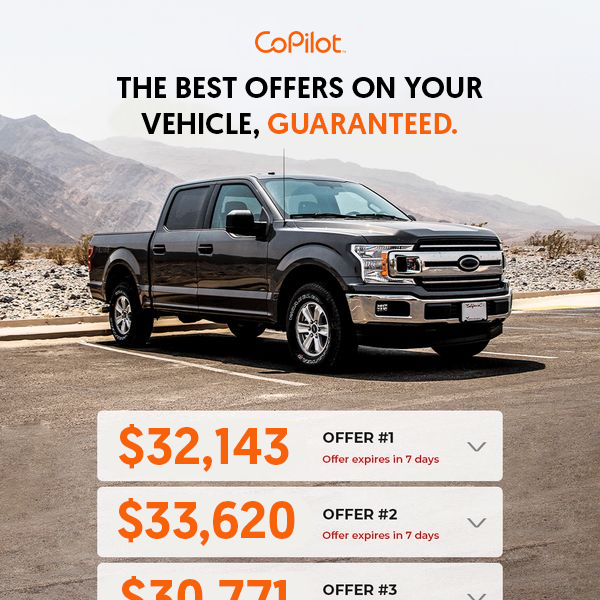Buying A Car in Wisconsin: What To Know

Photo by Tom Barrett on Unsplash
Some aspects of car buying are universal. For instance, “always go for a test drive” is good advice whether you’re buying in Sheboygan or Istanbul. But local regulations, bureaucracies, and fees are different from place to place. To help you sort things out, we’ve put together this short guide on how to buy a car in Wisconsin.
Make Sure the Title is Clean
The number one thing you want to look for, paperwork-wise, is a clean title. This means a valid title in the seller’s name with the correct VIN. It also means that there is no lien on the title. If there’s a lien, the seller doesn’t actually own their car (the bank does), and the lien will need to be paid off before the car can be sold.
You can tell if a car has a lien on it by checking the lienholder section of the title. If it’s been filled out, and there’s no “paid” stamp, there may still be a lien on the vehicle. The seller may have made all of their payments and simply never taken the title in to get stamped. In this case, make sure to ask for a letter from the lienholder that states that the lien has been paid in full.
NOT JUST FOR CAR SHOPPING
The CoPilot app isn’t just for buying a car - our new CoPilot for Owning tool will help you keep track of recalls and gives you advice on which scheduled maintenance tasks are most important.
Ask For a Vehicle History Report
A vehicle history report will give you a record of major events in a car’s past. It will list sales, transfers, and, most importantly, any accidents the car has been in. This is vital information for any buyer. For one thing, you may find negative information that causes you to reconsider the purchase. For another thing, you can use accident and other records in negotiating a better price.
As a matter of fact, many dealers now provide a vehicle history report as a standard part of any sale. If they don’t, or if you’re making a private purchase, ask for one. You can even pay a small fee to have one done yourself.
Obtain Car Insurance
Before you can register your new car, you’ll need to be able to provide proof of insurance. As a result, obtaining insurance coverage is an essential part of how to buy a car in Wisconsin. You’ll have liability insurance, as well as uninsured/underinsured motorist coverage.
Liability insurance is used to cover property damage or injuries in an accident where you were at fault. Minimum coverage is required of $10,000 for property damage, $25,000 for individual injuries or death, and $50,000 for total injury or death.
Register Your Vehicle
After transacting the sale, you’ll have to register your car with the state. To do that, you may need to have an emissions inspection performed. This is not required in the entire state, but it is required in the counties of Kenosha, Milwaukee, Ozaukee, Racine, Sheboygan, Washington, and Waukesha.
Emissions inspections are also only required for vehicles that are more than five years old. If you’re buying a newer off-lease vehicle, for example, emissions won’t be an issue.
Unless the car was sitting off the road, unregistered, it will already have an inspection certificate. Make sure to get this from the seller before you hand over any money. No paper certificate will be required if the car has passed an emissions inspection in the past 180 days.
For a private purchase, you’ll need to take your title, proof of insurance, and emissions inspection (if any) to your local DMV. There, you’ll have to pay any fees you may owe, and you’ll receive temporary license plates. Your permanent plates will arrive in about two weeks, via mail, as will a new title in your name.
The Wisconsin vehicle title fee is $69.50, and the registration fee for most vehicles is $75.00. Heavier trucks, from 6,000 to 8,000 pounds, have a slightly higher, $84.00 registration fee.
The largest trucks, those weighing from 8,000 to 10,000 pounds, have a fee of $106.00. Also, some counties charge a “wheel tax” on newly registered vehicles. This tax is $10.00 in the cities of Beloit and Mayville and in St. Croix County. For Milwaukee residents, the tax is $20.00.
Finally, you’ll need to pay a Wisconsin state sales tax of 5% and local taxes of between 0.1% and 0.6% depending on your county. The State of Wisconsin does not require a bill of sale for registration or titling.
However, a bill of sale can be useful for calculating sales tax. Without a bill of sale, the tax will be based on the vehicle’s current Blue Book value. If you paid less than Blue Book, you’ll overpay on tax unless you’ve got that bill of sale.
IS GAP INSURANCE WORTH IT?
Gap insurance can prevent you from making payments on an already-totalled car, but is gap insurance worth it? We break down what gap insurance is, if it’s worth it, and more - simply and with plenty of examples.
What if I’m Buying a New Car?
When it comes to new cars, how to buy a car in Wisconsin is the same way it’s done in every other state. A licensed dealer has a relationship with the DMV and takes care of all the paperwork for you. The only thing you need to provide for yourself is proof of insurance.
That said, you’ll still be responsible for the titling fee, registration, and wheel tax. The dealer simply adds those costs onto the purchase price and passes them along to you.
THE BEST USED LUXURY CARS ON THE MARKET
Buying a used or CPO luxury car is one of the smartest buys you can make - you can get a lot of car for not much money. You can pick up a three-year-old luxury car for about half of what you’d pay new. Check out this list of the best used luxury cars on the market to find the best deals.
Use a Reliable App
Now you know everything you need to know about how to buy a car in Wisconsin. But the shopping process can still be notoriously difficult. That’s where the CoPilot car shopping app comes in. Enter the type of vehicle you want, and CoPilot searches all your area dealerships for an appropriate model.
CoPilot Compare is another useful tool designed specifically for relatively new models. This advanced search engine will only show five years old or newer cars and only with low mileage. You can easily find early resales and cars that have just come off a lease.
CoPilot is able to do this by tapping into the same network that dealers use. We don’t just look at public listings. We look at the prices that dealers are willing to offer to each other. To learn more about how CoPilot works, read our story.








